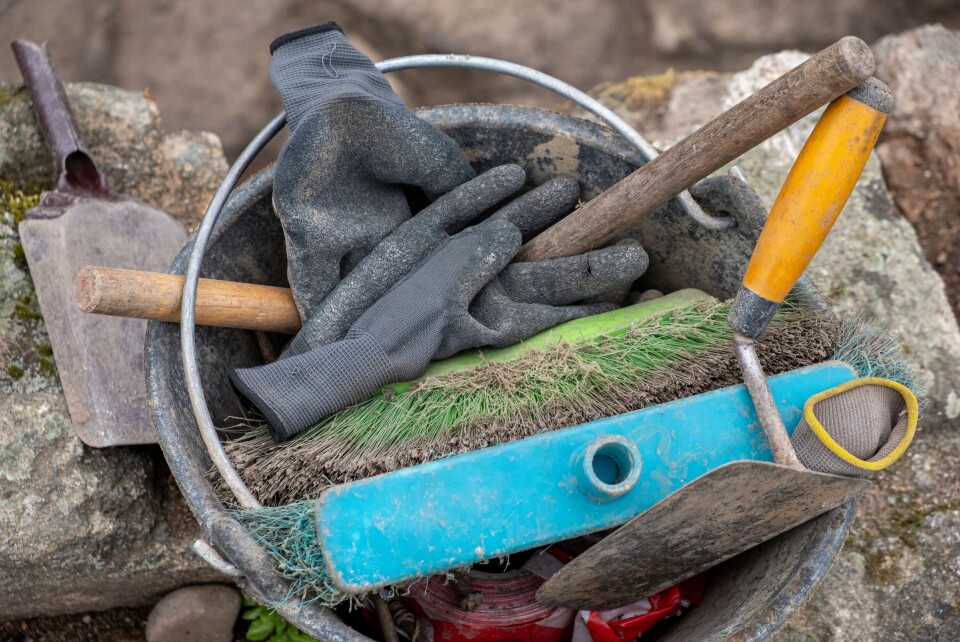-
Hospital fees set to increase in France: how will patients be affected?
Plans to save €400 million from social security spending targets several flat fees
-
New pink number plates in France lead to more police road checks
The plates are designed to enhance visibility and deter fraud
-
Alder pollen spike leads to warnings across most of France
Parts of the south-west at highest risk. Cypress pollen is also present along French Riviera
Search begins in France to find 47 executed German soldiers
The executions in June 1944 were in part retribution for German massacres elsewhere in Corrèze

German authorities have begun a search for the remains of almost 50 German soldiers executed in one single day in the French countryside during the Second World War.
The hunt, being led by the Volksbund deutsche Kriegsgräberfürsorge (German War Graves Commission), and the national veteran’s office of France, started on Tuesday (June 27) in the countryside near Meymac, Corrèze.
A French resistance fighter from the area kept the location of the execution secret for almost 80 years, before publicly revealing the knowledge, allowing historians and authorities to find the site.
With the general area of the execution already known, a georadar is being used until the end of the week to pick up any traces of the remains, with further digs being organised in the summer.
‘We didn’t want to kill them’
Edmond Réveil, a member of the French resistance in Corrèze, kept quiet about the event for almost 80 years, before revealing his story to the mayor of Meymac.
The mayor kept the interview private for more than three years, while he organised efforts to set up a search for the site, before releasing the testimony to the wider public last month.
Just 19 years old at the time, Mr Réveil said his unit “didn't want to kill” the Germans, but were ordered to do so after the massacre of French prisoners by Axis forces in Caen on June 6 1944 – the day of the Normandy beach landings.
The German soldiers were rounded up and executed in one night – June 12, 1944 – by a team of resistance fighters from the local countryside.
There was hesitation from his unit over the execution “Because [the soldiers] were killed individually,” instead of at the same time, said Mr Réveil, and the Germans had to dig their own graves before being shot.
“There was only one [resistance fighter] who spoke German, and that was our captain… He took them all one by one, talked to them before shooting them. And he cried like a child when they had to be shot. Because it's not fun to shoot someone,” he added.
Alongside the 47 soldiers, there was one French woman working for the Gestapo who was also executed, but who “no one wanted to kill”, said Mr Réveil.
After the execution, the soldiers were ordered to keep quiet and the unit’s other soldiers took the secret to their graves.
Mr Réveil is the last remaining survivor of the unit and so felt “liberated” to tell his story, said the mayor of Meymac, Philippe Brugère.
Historians – who knew about the executions but not the exact numbers or location – are also thankful to Mr Réveil for coming forward and expanding their knowledge of the event.
Revenge for German massacres
Alongside the massacre of French prisoners in Caen, the execution of the Germans came just a few days after the Tulle massacre.
Communist resistance fighters had liberated the town – one of the largest in Corrèze – after hearing the news about the D-Day landings, but the Germans retook the town in the following days.
After recapturing it, German forces hanged nearly 100 residents of the town from the now-famous balconies in the centre as a warning and deported 145 others to concentration camps.
Meymac is around 100 km away from Oradour-sur-Glane, the site of a massacre of almost 650 villagers that happened on June 10, 1944 – two days before the executions by Mr Réveil’s company.
Read more: Last survivor of French war massacre village Oradour-sur-Glane dies
Bodies to be buried after exhumation
The excavation will be split into “two parts” said Xavier Kompa, director of Office national des anciens combattants (national veterans’ office) of Corrèze.
The first phase, using a georadar to locate the site of the grave, started today, in a small area, the location of which was given by Mr Réveil.
“Once [the grave] has been found… we will exhume the bodies in the presence of archaeologists and anthropologists,” added Mr Kompa, regarding the second phase set to take place later in the summer.
Any remains found will be sent to the Institute of Anthropology in Marseille to help with identification before they are either buried in a German cemetery in France or sent to the families of the executed soldiers.
Related articles
Make the 80th anniversary of D-Day a national holiday, urges French MP
Descendants of Frenchmen forced to fight for Germany seek recognition
























